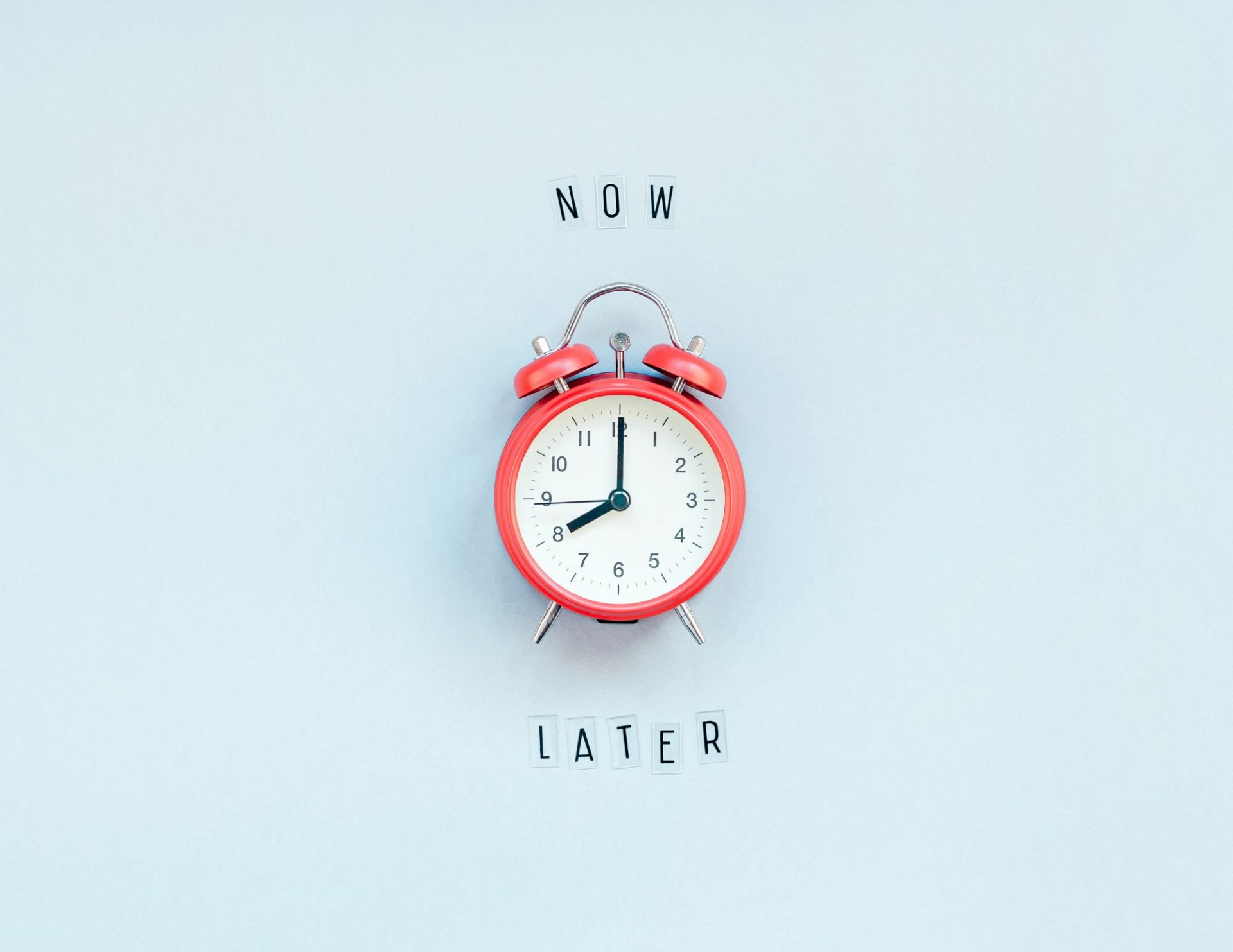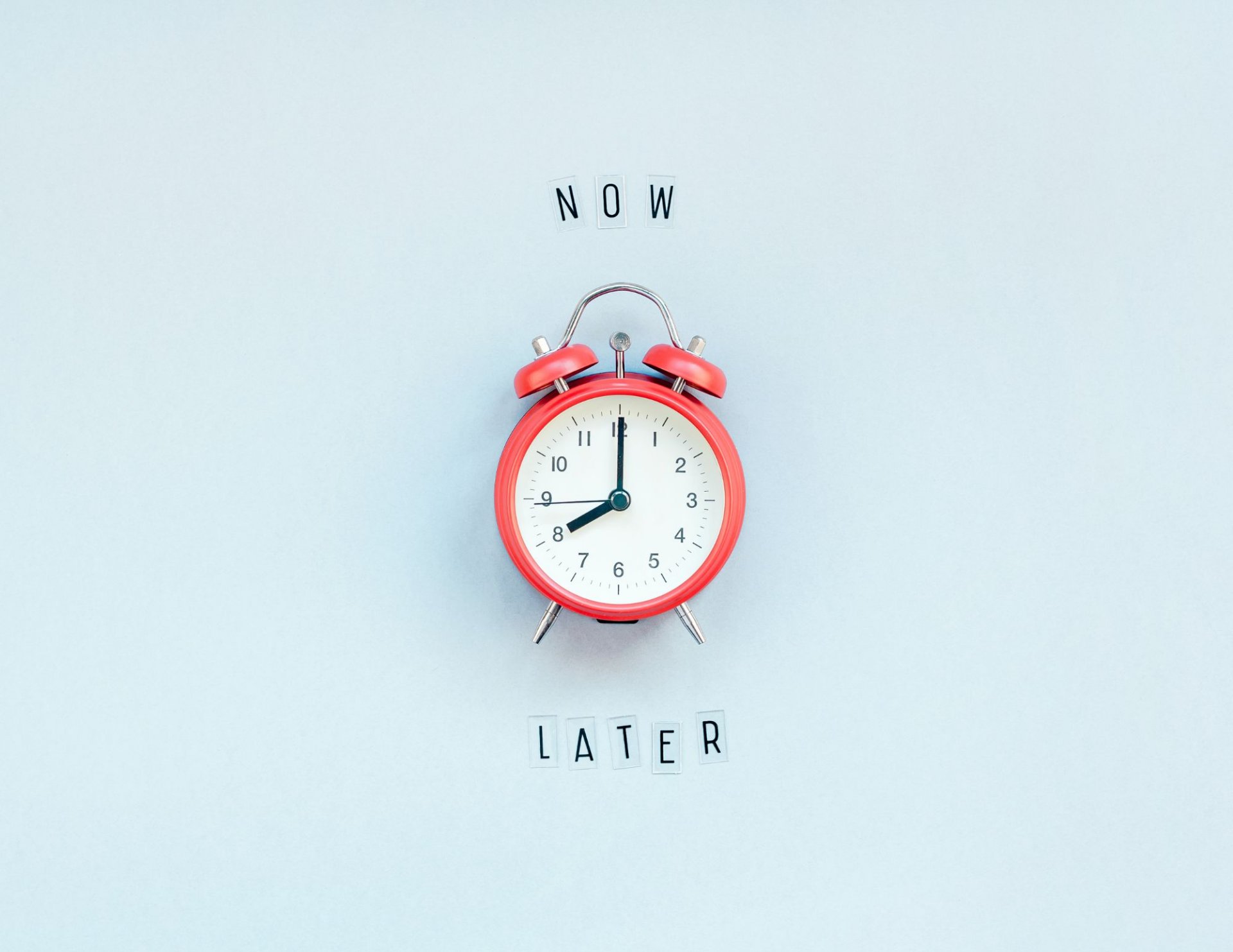HayU Blog
Why We Procrastinate and How to Stop
December 13th, 2023
Procrastination. The sworn enemy of productivity. Or, worse still, the glass ceiling that keeps us and our kids from reaching our sky-high potential. We often equate procrastination with laziness, a lack of motivation, or deficient time management.
What we don't often connect it to is emotional dysregulation.

The research[1] shows that at the core of why we procrastinate is an attempt to manage negative emotions. When faced with an overwhelming or unpleasant task, our brain function shifts from the frontal lobe to the amygdala. The amygdala's role is to prepare us for impulse-type activity. It is the fight or flight center of our brain. The frontal lobe, on the other hand, is responsible for longer-term planning, strategy, and action. When our brain categorizes a book report or a stressful email as a threat causing negative and unpleasant emotions, it sometimes hands the keys over to the amygdala. The amygdala assesses the situation and reports back, saying, "If you don't want to deal with these negative emotions, you should do something else right now, and that will make you feel better. Go ahead and find something with the highest chance of immediate gratification". And so, we binge-watch, eat, or doom scroll - or, if we want a guilt-free alternative, we pick something else off our to-do list.
And even if we know, in the back of our minds, that we are simply delaying what needs to be done, our amygdala is in the front seat, dictating that we should only care about our current selves, not our future selves. And so, we procrastinate.
The critical insight here is that in most cases, procrastination isn't caused by a general aversion to work (laziness) or an inability to manage our time (time blindness). It is, at its core, an inability to regulate and accurately respond to how we feel about certain tasks.
Once we realize this, we can address our procrastination more thoughtfully and effectively.
Since managing our emotions is the core reason that we procrastinate, we can consider proactively managing our mood before tackling a task we tend to avoid.
Exercise is an excellent option to consider. Exercise has been shown to impact your mood and emotional well-being[2] positively. Something as simple as a walk around the block or as sweat-filled as a trip to the gym can boost your mood and make it easier to tackle the task you have been avoiding. Consider scheduling the tasks you procrastinate around the more active parts of your day.
You could also consider externalizing the motivation needed to start these tasks. If the task itself is causing the negative emotions that set off our avoidance, could you tie the task to an external motivator with which you have positive associations? Apps like Habitica and Joon have perfected this by gamifying your to-do list. Load up your task list on these apps, and as you power through them, you can level up your character within the game, which enables you to take on more challenging quests. You can assign more points to the tasks you tend to procrastinate on, leading to greater in-game rewards and bigger positive emotions associated with completing them. This sort of external motivation is what makes "closing the rings" on the Apple watch so effective at promoting physical activity. When the focus is directed at the visual challenge of closing the rings rather than the physical activity itself, it results in more effective follow-through.
Lastly, consider if accountability and camaraderie might help with your procrastination. Asking someone to hold you accountable to complete a task adds an external motivator to get it done. This counteracts your amygdala's tendency to disregard your future self and their commitments. For some, though, having someone work alongside you is the best motivator. Simply having someone else in the room as you work, doing a task of their own, can be a powerful deterrent against procrastination. Some companies, like Caveday and Flow Club, have used this to create virtual body doubling rooms. Here, you can join a virtual Zoom room with others with the goal of sharing your task list, silently working together for an hour, and then sharing your wins at the end.
If you struggle with procrastination, try one of these tips above and see if any of them work for you!
By Hunja Koimburi, M.A.
Director, Hayutin Education
[1] Addressing the Emotional Roots of Procrastination in Middle and High School | Edutopia
[2] More evidence that exercise can boost mood - Harvard Healt




